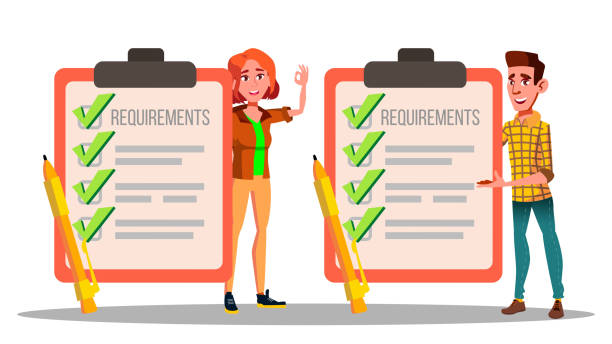Diving right into the nuts and bolts of getting started with the ICAG Professional Qualification under the 2024-2029 syllabus, let’s talk entry requirements. You know, these are the basic thresholds you have to cross before you can even think about tackling those exams. It’s not like they’re trying to keep people out but rather ensuring everyone has a solid foundation to build on. For starters, knowsia if you’re fresh out of senior high school, the bar isn’t set too high, but it’s firm. Holders of the West African Senior School Certificate Examination (WASSCE) need six credits, and yeah, that includes English and Mathematics—no skimping there. Similarly, if you’ve got the Senior Secondary School Certificate Examination (SSSCE) or General Business Certificate Examination (GBCE), six passes from A to D, again with English and Mathematics in the mix, will do the trick.
But hey, life’s not just about high school diplomas anymore. If you’ve gone further, say with a diploma or degree from a tertiary institution, that’s your ticket in too. The Institute recognizes stuff like the Accounting Technician Scheme West Africa (ATSWA), Higher National Diplomas (HND), bachelor’s degrees, master’s, or any other qualification they deem acceptable. And don’t forget, you have to be at least 16 years old—seems young, but it’s about opening doors early for ambitious folks. Oh, and being a “fit and proper person” is key; that’s code for having good character, no shady background that could tarnish the profession.
Now, why all this emphasis on entry requirements? Well, the ICAG Professional Qualification isn’t some walk in the park. It’s designed to mold top-notch chartered accountants who can handle Ghana’s evolving financial landscape. Imagine trying to dive into advanced audit techniques without a grasp on basic math or communication—disaster waiting to happen. These entry requirements act as a filter, making sure candidates are ready to absorb the syllabus’s depth. Take, for instance, someone with just the minimum high school passes; they’ll start from scratch at Level 1, building up their knowledge brick by brick.
Transitional speaking, once you’re in, progression is straightforward but disciplined. You can’t jump around willy-nilly. Level 1 comes first, and you need to clear it before hitting Level 2, then Level 3. In Levels 1 and 2, you can pick at least two papers per sitting, giving some flexibility if you’re juggling work or other commitments. But Level 3? All four papers at once—no half-measures there. It’s like the final boss level, testing your endurance and comprehensive understanding.
And let’s not gloss over registration. To get the ball rolling, head to the ICAG student portal at sms.icagh.org. Fill in your details, upload those certificates, and pay up: GH¢400 for registration and another GH¢400 for subscription. If exemptions apply—and we’ll get to those soon—you’ll cough up extra for those too. It’s all online now, streamlined to avoid the old paperwork headaches.
Subtleties in Entry Requirements for Different Candidate Profiles

Zooming in a bit, entry requirements aren’t one-size-fits-all. For high school grads, it’s straightforward, but what if you’re an ATSWA holder? That’s considered a diploma-level entry, and it positions you nicely for exemptions, but more on that later. The point is, the Institute casts a wide net to include diverse backgrounds, from fresh teens to seasoned professionals switching careers.
Consider a young adult with a WASSCE certificate, credits in the core subjects— they’re in. But add a diploma in accounting, and suddenly the entry requirements feel like a launchpad rather than a hurdle. It’s all about equity; ICAG wants to attract talent from across Ghana, whether you’re from Accra or Tamale.
Special considerations? Yeah, there are a few. For instance, if your qualifications are from outside Ghana, they need GTEC accreditation or ICAG recognition. No shortcuts there; it’s to maintain standards. And for those under 16, sorry, wait a year— the profession demands maturity.
Bursting into examples, picture a student from a rural area with GBCE passes. They meet entry requirements, register, and start Level 1. Fast forward, they could be auditing major firms. That’s the beauty; entry requirements democratize access.
Exemptions: The Fast-Track Mechanism in the ICAG Syllabus

Shifting gears to exemptions—ah, the sweet relief for those who’ve already put in the work elsewhere. Under the 2024-2029 syllabus, ICAG’s exemption policy is generous but precise, aimed at avoiding redundancy. Basically, if you’ve studied similar stuff before, why redo it? Exemptions are granted based on qualifications from GTEC-accredited institutions, ensuring quality isn’t compromised.
Starting with diploma holders: If you’ve got a Diploma in Accounting from a tertiary institution, wave goodbye to all Level 1 papers. It’s like skipping the intro class because you already know the basics. This saves time and money, letting you dive into application-level stuff sooner.
Then, HND in Accountancy Option holders get even more love—all Level 1 papers plus Paper 2.3 Audit and Assurance. Why? Because HND curricula overlap heavily with ICAG’s foundation knowledge. It’s practical; these folks have hands-on experience from polytechnics, so exemptions acknowledge that.
ATSWA holders? Jackpot. Exempt from all Level 1, plus Papers 2.3 Audit and Assurance and 2.6 Principles of Taxation. ATSWA is ABWA’s baby, and ICAG sees it as a solid prep, especially for West African contexts. After ATSWA, you can slide right into CA professional exams with those exemptions.
Exemptions for University Students and Graduates

University folks, listen up. If you’re a Level 300 student in programs like BSc Administration (Accounting Option), Bachelor of Commerce (Accounting/Finance Option), or similar, you’re exempt from all Level 1 papers. But there’s a catch—your institution must have an MOU with ICAG, and transcripts need endorsement from the Dean, Head of Department, or ICAG Ambassador.
For accounting option students, add exemptions from Audit and Assurance and Principles of Taxation. Finance option? It depends on what you studied—if you did those subjects, exemptions apply accordingly. This policy encourages university partnerships, making the ICAG qualification more integrated with higher education.
Bachelor’s degree holders in Accounting from accredited places get Level 1, Audit and Assurance, and Principles of Taxation off their plate. Other bachelor’s? Subject-by-subject basis, based on transcripts. It’s fair, right? No blanket exemptions; it’s tailored.
Masters degrees take it up a notch. Holders of Master’s in Accounting (with a first degree in Accounting) get exemptions from all Level 1 and most Level 2 papers, except Public Sector Accounting and Finance. That’s huge—you’re almost at the professional level from the get-go. For Master’s in Accounting option only, there might be additional exemptions in Management Accounting, but it requires both degrees in accounting.
Finance Master’s with finance first degree? Similar, but exemptions skip Audit and Assurance and Taxation if not covered.
Exemptions for Other Professional Qualifications

Don’t think ICAG ignores other pros. Though the syllabus doesn’t list every one, exemptions for qualifications like ACCA, CIMA, ICAEW, CPA are on a case-by-case, subject-by-subject basis up to Level 2, excluding Public Sector Accounting and Finance. It’s about alignment with ICAG’s standards.
For example, if you’re part-way through ACCA, you might get credits for overlapping papers. The key is submitting transcripts for review. Fees apply, but it’s worth it for the time saved.
Application Process for Exemptions

Applying for exemptions? It’s tied to registration. On the portal, upload your docs, and ICAG reviews. Pay the exemption fees—varies by how many papers you’re skipping. It’s not automatic; they check syllabus match and rigor.
If denied, you can appeal, but better to have everything endorsed upfront. Special considerations for international qualifications include equivalence certification.
Benefits and Considerations of Exemptions

Exemptions aren’t just shortcuts; they motivate lifelong learning. By recognizing prior achievements, ICAG boosts enrollment from diverse fields. But remember, exemptions don’t mean easy ride—you still need to master the remaining papers.
Think about it: A HND holder skips Level 1, jumps to Level 2, applies real-world skills. Burst of progress! Yet, they must stay sharp for advanced topics.
Progression with exemptions? Same rules—clear levels in order. Exams in March, July, November; apply two months ahead.
Case Studies and Real-World Examples
Let’s get creative with examples. Suppose Kwame, a Level 300 BSc Accounting student at a MOU-signed university. He gets Level 1 exemption, plus Audit and Assurance. Endorsed transcript in hand, he registers, pays, and starts Level 2. By graduation, he’s halfway to CA.
Or Ama, with ATSWA. She skips Level 1 and two Level 2 papers. Working in a firm, she balances exams with job, becoming chartered faster.
Then, Kofi with Master’s in Accounting. Exempt from most up to Level 2. He focuses on professional papers, leveraging academic depth.
These stories show how entry requirements and exemptions interweave, creating paths for all.
Challenges and Tips for Navigating Entry Requirements and Exemptions

It’s not all smooth. Challenges like transcript delays or unrecognized quals can trip you up. Tip: Check ICAG website early, consult ambassadors.
For exemptions, gather all evidence—syllabi from your institution if needed. Don’t assume; verify.
Burstiness in the process: Some sail through, others hit snags. Stay persistent.
Integration with the Overall Syllabus 2024-2029

Tying back, entry requirements and exemptions align with the syllabus’s three levels: Knowledge, Application, Professional. They ensure you’re ready for the progression, from basics to strategic thinking.
In the 2024-2029 update, exemptions reflect new topics like sustainability reporting, but core policy stays consistent.
Future Outlook on Entry Requirements and Exemptions

Looking ahead, as Ghana’s economy grows, entry requirements might evolve, perhaps incorporating digital literacy. Exemptions could expand to more international quals.
For now, it’s robust, inviting talent while upholding standards.

